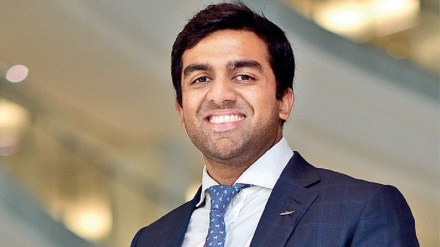JSW Cement doesn’t have the might to take on market leaders such as Aditya Birla Group’s UltraTech Cement and Adani Group’s Ambuja Cement in acquisition battles as yet, and will only consider doing so when it achieves a 7-8% market share, managing director Parth Jindal said at a media roundtable in Mumbai, reports Urvi Malvania. Till then, the focus is on scaling up organically and leveraging the JSW Group’s synergies. Through its IPO expected later this week, the company seeks to raise Rs 3,600 crore, including a fresh issue of Rs 1,600 crore, and has set a price band of Rs 139-147 per share.
Will JSW Cement look at assets under the IBC route or other distressed opportunities? What is your stance on bidding for them when larger players are also interested?
We will definitely evaluate any asset that becomes available through the IBC route or otherwise. Our organic roadmap is far more exciting because we can pick and choose which geography we want to enter, judging the supply-demand scenarios. If an asset of high quality or very low value becomes available which fits into this geographic footprint, we will look at it.
Having said that, if it is interesting to us, it will be interesting to the big boys and I don’t want to get into a bidding war with a much bigger and stronger player than me today. Honestly—and I use the absolutely correct word here—we don’t have the “aukaat” right now to fight with the big boys, and I don’t want to go to my father for help. Once we have size and scale, have a 7-8% market share pan-India, then we will see.
What is JSW Cement’s growth target over the next few years?
We have a medium-to-long term target of being a 10% market share player pan-India. Looking at the way the industry is growing—last year, India consumed about 435 million tonne cement. If you look at about 6-7% growth over the next 5-6 years, this number will go to about 700 million. We have a vision of 60 million (tonne capacity), which would give us about 6-7% market share, maybe 7-8%. We are working on how to get to 10%.
Why was the IPO size reduced from Rs 4,000 crore to Rs 3,600 crore, and why only in the primary component?
We believe that the near-term requirements of JSW Cement are being met by Rs 1,600 crore as well as the internal accruals of the company. Secondly, we want to save any future dilution for later, like after a year or whenever we need the capital through (instruments like) a QIP or an FPO. When we filed the DRHP, the cement industry was going through a huge downturn and we needed this Rs 400 crore extra for our projects. Now, we can make do with less for our immediate requirement.
Are you seeing improved pricing discipline and industry conditions after last year’s challenges?
I think the worst is behind us. In many ways, I would say last year was the worst the cement industry has ever seen. Prices completely crashed. There was intense competition for acquisitions by the leading players, which led to irrational behaviour by everyone. I think after the large players have deployed so much capital into this business, they are also chasing some returns—which is leading to stability of price.
We are not competing with them (the market leaders) in terms of pricing power. They determine the price and we follow. For 20 years, JSW Steel followed Tata Steel’s price, now Tata Steel follows ours. We will see what happens after 20-30 years, but (right) now I am their follower.
Why is private sector capex lagging despite strong economic fundamentals? What needs to change?
If you look at private companies in general, they have deleveraged over the years and have very strong balance sheets. Today, a handful of (large) groups are investing in India. We need it to be more democratised, we need more MSMEs to invest, we need everyone to invest. We, at the JSW Group, plan to invest close to $50 billion across all our businesses over the next five years.
